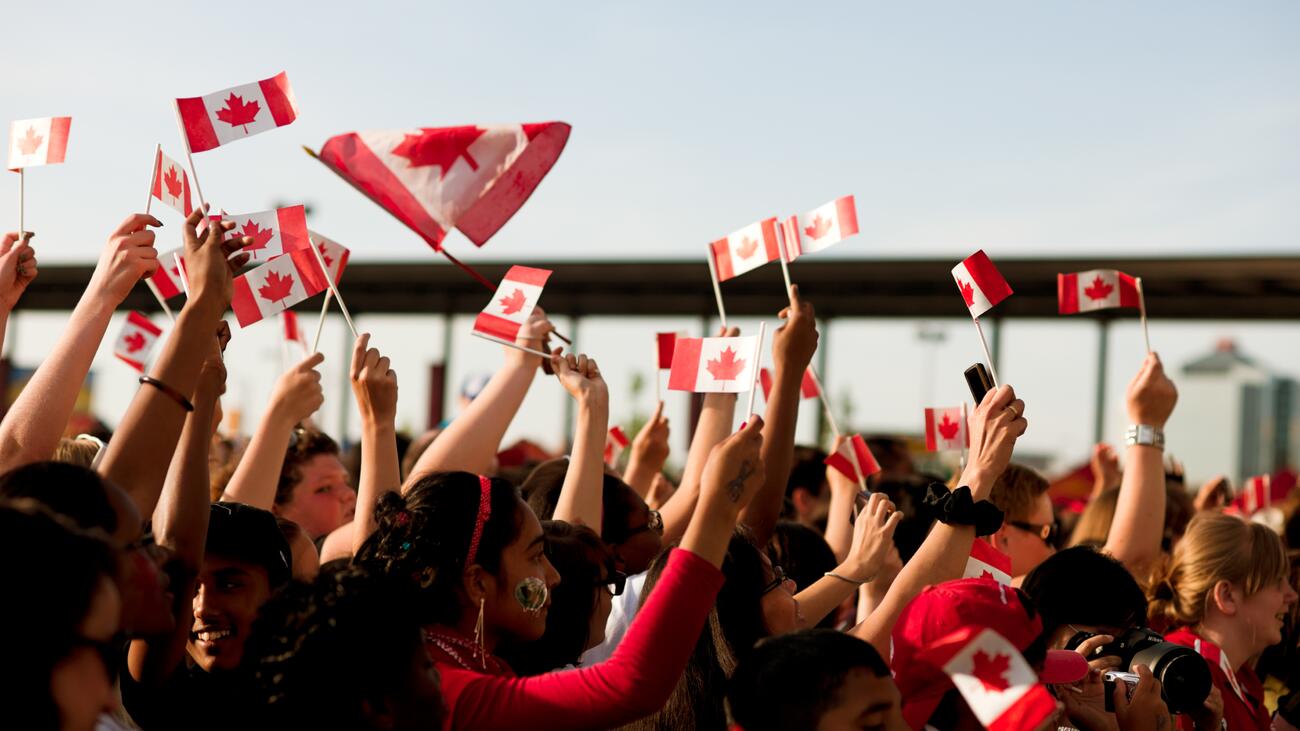What does it mean to be Canadian?
UBC Okanagan study shares early findings and reflections on Canadian citizenship.
What characteristics do you associate with being “Canadian?” What values do you think Canadians should share? Do you think we should be proud of Canada?
These are some of the questions posed in a survey from Dr. Catherine Broom, an Associate Professor with the Okanagan School of Education. Broom is studying how Canadians understand what Canada is — what it means to be a Canadian and how to educate for this. Along with her graduate assistant Dr. Camille Rousseau, she is gathering data from an online survey that invites Canadians to share their views on citizenship, identity, and citizenship education.
Since the survey’s launch two years ago, more than 500 people have participated — predominately females between the ages of 19 and 25, and those living in Western Canada.
“Respondents generally report feeling a sense of belonging and pride in Canada at 58 per cent and 44 per cent respectively,” says Broom. “However, many have been reflecting on whether being proud of Canada is appropriate given the country’s historical wrongs and contemporary issues. Respondents have echoed similar sentiments stating that while some might be proud, others have a good reason not to be.”
Housing concerns, economic instability, addressing Canada’s historical wrongs, climate change, and social inequality top the list of reasons why some Canadians may not feel proud of their country.
Participants feel that Canadians should be bonded in their values and their diversity. When speaking specifically about the values Canadians should share, participants reported more than 390 unique responses. Across these responses, key values include kindness, respect, and diversity.
“On a positive note, participants’ hope for the future of Canada is that it be a welcoming nation of inclusivity, tolerance, and acceptance,” says Broom.
And she notes many agree the maple leaf is the most commonly associated symbol of Canada.
By the end of this research, Broom hopes to develop recommendations for school citizenship education programs that address participants’ feedback and bring Canadians together.
People can learn more about the study, find resources on citizenship education, or fill out the survey at citizenshipeducation.ok.ubc.ca.
The survey will be open to adults across Canada until September 1, 2024, and is available in English and French.
































